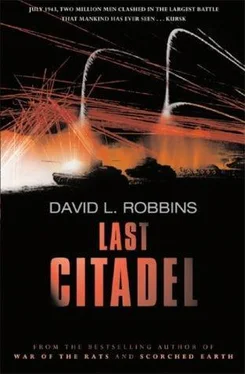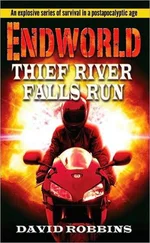David Robbins - Last Citadel
Здесь есть возможность читать онлайн «David Robbins - Last Citadel» весь текст электронной книги совершенно бесплатно (целиком полную версию без сокращений). В некоторых случаях можно слушать аудио, скачать через торрент в формате fb2 и присутствует краткое содержание. Город: London, Год выпуска: 2003, ISBN: 2003, Издательство: Bantam, Жанр: prose_military, на английском языке. Описание произведения, (предисловие) а так же отзывы посетителей доступны на портале библиотеки ЛибКат.
- Название:Last Citadel
- Автор:
- Издательство:Bantam
- Жанр:
- Год:2003
- Город:London
- ISBN:0-75286-032-1
- Рейтинг книги:4 / 5. Голосов: 1
-
Избранное:Добавить в избранное
- Отзывы:
-
Ваша оценка:
Last Citadel: краткое содержание, описание и аннотация
Предлагаем к чтению аннотацию, описание, краткое содержание или предисловие (зависит от того, что написал сам автор книги «Last Citadel»). Если вы не нашли необходимую информацию о книге — напишите в комментариях, мы постараемся отыскать её.
Another fighting for survival.
Two armies locked in a bloody cataclysm that will decide history…
David L. Robbins has won widespread acclaim for his powerful and splendidly researched novels of World War II. Now he casts his brilliant vision on one of the most terrifying—and most crucial—battles of the war: the Battle of Kursk, Hitler’s desperate gamble to defeat Russia, in the final German offensive on the eastern front.
Spring 1943. In the west, Germany strengthens its choke hold on France. To the south, an Allied invasion looms imminent. But the greatest threat to Hitler’s dream of a Thousand Year Reich lies east, where his forces are pitted in a death match with a Russian enemy willing to pay any price to defend the motherland. Hitler rolls the dice, hurling his best SS forces and his fearsome new weapon, the Mark VI Tiger tank, in a last-ditch summer offensive, code-named Citadel.
The Red Army around Kursk is a sprawling array of infantry, armor, fighter planes, and bombers. Among them is an intrepid group of women flying antiquated biplanes; they swoop over the Germans in the dark, earning their nickname, “Night Witches.” On the ground, Private Dimitri Berko gallops his tank, the Red Army’s lithe little T-34, like a Cossack steed. In the turret above Dimitri rides his son, Valya, a Communist sergeant who issues his father orders while the war widens the gulf between them. In the skies, Dimitri’s daughter, Katya, flies with the Night Witches, until she joins a ferocious band of partisans in the forests around Kursk. Like Russia itself, the Berko family is suffering the fury and devastation of history’s most titanic tank battle while fighting to preserve what is sacred–their land, their lives, and each other–as Hitler flings against them his most potent armed force.
Inexorable and devastating, a company of Mark VI Tiger tanks is commanded by one extraordinary SS officer, a Spaniard known as la Daga, the Dagger. He’d suffered a terrible wound at the hands of the Russians: now he has returned with a cold fury to exact his revenge. And above it all, one quiet man makes his own plan to bring Citadel crashing down and reshape the fate of the world.
A remarkable story of men and arms, loyalty and betrayal,
propels us into the claustrophobic confines of a tank in combat, into the tension of guerrilla tactics, and across the smoking charnel of one of history’s greatest battlefields. Panoramic, authentic, and unforgettable, it reverberates long after the last cannon sounds. Last Citadel















